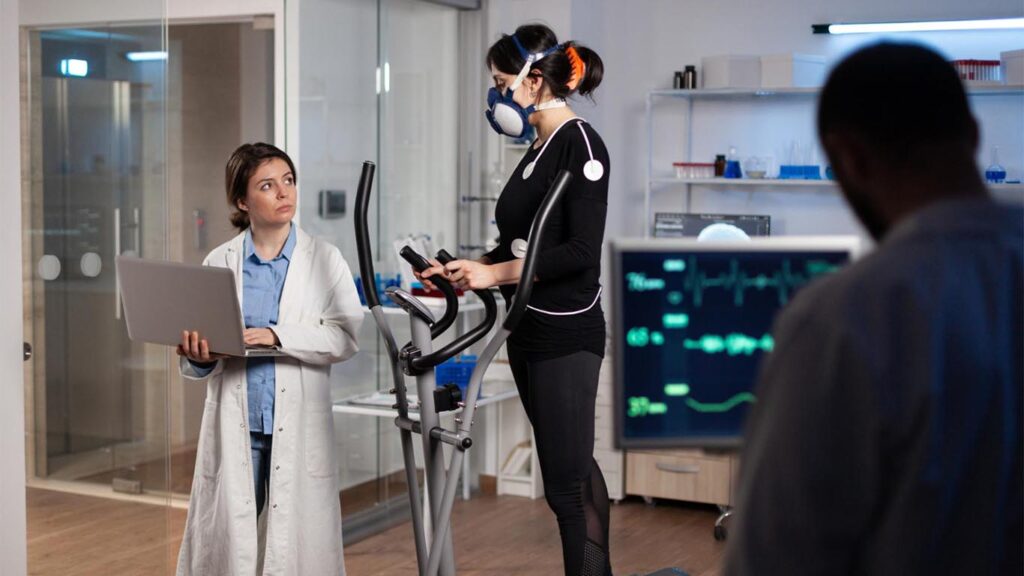The intersection of technology and healthcare is revolutionizing the way we approach both wellness and medicine. Over the past few decades, we’ve seen incredible advancements that have improved diagnostics, treatment methods, and patient care. From wearable devices that track our daily health metrics to cutting-edge AI-driven tools assisting in medical research, technology is shaping the future of health in ways that once seemed impossible.
Personalized Health and Precision Medicine
One of the most exciting developments in the future of healthcare is the rise of precision medicine. This approach tailors medical treatments to individual patients based on their genetic makeup, lifestyle, and environmental factors. Unlike traditional “one-size-fits-all” treatments, precision medicine uses detailed data to determine the most effective treatments for each person.
Through genetic testing and personalized health data, doctors can now predict health risks, understand genetic conditions, and even customize drug prescriptions. For example, advancements in genomics have already begun to provide insights into how certain diseases, like cancer, behave at a molecular level. This allows for more targeted therapies, improving treatment outcomes and minimizing side effects.
Wearables and Remote Monitoring
Wearable technology is increasingly becoming a part of our everyday lives, with devices such as smartwatches, fitness trackers, and specialized health monitors. These gadgets not only track physical activity but also monitor heart rate, sleep patterns, blood oxygen levels, and even stress. Apple Watch, Fitbit, and similar devices have paved the way for health-conscious consumers to manage their wellness proactively.
More importantly, these wearables are helping to bridge the gap between doctors and patients. Remote monitoring is enabling healthcare providers to track patient health in real-time, regardless of location. This is particularly beneficial for patients with chronic conditions like diabetes or heart disease, as healthcare professionals can detect issues early, preventing complications and reducing hospital readmissions.
Artificial Intelligence and Data Analytics
Artificial Intelligence (AI) is playing a key role in reshaping both diagnostic and treatment methods. AI algorithms are increasingly used to analyze medical data, interpret imaging results, and even predict the progression of diseases. In fields like oncology, AI is already assisting doctors by analyzing medical scans to identify tumors with greater precision than the human eye alone.
Moreover, AI-driven tools are also being utilized in drug development, significantly speeding up the process of discovering new medications. Machine learning models are being used to analyze massive datasets, identifying patterns that can lead to the development of new therapies, vaccines, and treatments.
Big data analytics also plays a pivotal role in understanding trends in public health and identifying patterns in disease outbreaks, lifestyle habits, and treatment effectiveness. This data can help policymakers and healthcare providers make informed decisions that improve healthcare delivery on a larger scale.
Telemedicine and Virtual Healthcare
The COVID-19 pandemic brought telemedicine into the spotlight, and its growth continues to soar. Virtual healthcare consultations have made it easier for patients to receive medical advice without leaving their homes, making healthcare more accessible, especially in rural or underserved areas. With the convenience of video calls, patients can consult with doctors for common health issues, prescription refills, or follow-up appointments.
Telemedicine also allows for quicker response times in emergency situations, particularly in urgent care or mental health scenarios. Furthermore, specialized virtual care options are emerging for mental health, with apps and platforms connecting patients to licensed therapists, allowing for greater flexibility in mental health treatment.
Robotics and Surgery
Robotic technology is transforming surgery, enabling minimally invasive procedures with greater precision. Surgeons can now use robotic-assisted surgery systems, like the da Vinci Surgical System, which allows them to perform complex surgeries through small incisions. These systems provide more accurate, efficient, and less invasive procedures, leading to faster recovery times and fewer complications.
Additionally, robotics is being used in rehabilitation, assisting patients with physical therapy through interactive, robotic-assisted movements. These systems help patients regain mobility more quickly and effectively, offering an alternative to traditional therapy methods.
The Road Ahead: Challenges and Considerations
While the future of healthcare is undoubtedly exciting, there are challenges that come with these advancements. Data security and privacy are ongoing concerns, especially as more personal health information is shared through digital platforms. Ensuring that patient data is protected and used ethically will be critical as healthcare technology continues to evolve.
Moreover, accessibility remains a key issue. While these technologies have the potential to revolutionize healthcare, there is a risk that they may widen health disparities if not made accessible to all communities. Bridging the digital divide and ensuring that healthcare technology reaches underserved populations will be crucial for achieving equitable healthcare solutions.
Conclusion
Technology is poised to transform the future of health in ways that will enhance wellness, improve treatments, and revolutionize the patient experience. As we move toward a more personalized, connected, and tech-driven healthcare system, the integration of advanced technologies like AI, wearables, and telemedicine will make healthcare more efficient, accessible, and effective than ever before.

.png?Expires=1832484706&Key-Pair-Id=K2ZIVPTIP2VGHC&Signature=jNzLPN1yj0PDTPCEppQegET1mCv1fo0zyXIBnW5apU6nng1po7qG9xWv21k4dDlXCjYSG1hDpZEGn-XsTpIqiPPxYujjAhP6l7uq0-U7HG6VqSAOIETLKB0K9EJEbmssMVyOBLYF1~tszQM4ufZ4PGXGrP8aOiGDCkQ0AwXQkLP7yJIQ9JhIZEnbXruxSJkTboAq03kVBHG5Z5JvxSnUmmUKmnb8OYKrL3knZnZvKYMgVtucnVF2G0HG4~4VYVa7jmcTmvf17vHG-WMgKfQwg5zBdPEoLM9X-rPKMLVV3vTJ3aGRVvkKKua9IZtWuhP4285TyUwO1HSEzr3wkdwHlw__)
.png?Expires=1832484562&Key-Pair-Id=K2ZIVPTIP2VGHC&Signature=XJAqe9ZdUvRUR4PZYw0vFm6VRnDrrIEjvKrc58eOlgIzg~WoQQI6AjiDBNhE2B~Y4PC2nJLbfgj6oEG1xY0V1I0zeRPrbuG3pCvBIj8GIB3wZnUzj906pevSKMTFob7dsl6nFP93R929HU89BxpRy8UXYhi6MQxcJEGmyKbR~l0ZX52609~hKrwq65fwmBkNb1z9Xx-FiWzHMJqFP~SMqwjuF5YZcxfNVHzVC~0ATJQ6w7fLd5Mzh6zGTLcdPgLNTuDxJ4Uqtl87izXQCEbDjfSJsIAVJg~CSuw~Vqxi1Kl3cIB7R9xyTjUOR-V2hJ-Un6YBkYAgna~J6RuJLwP3gQ__)